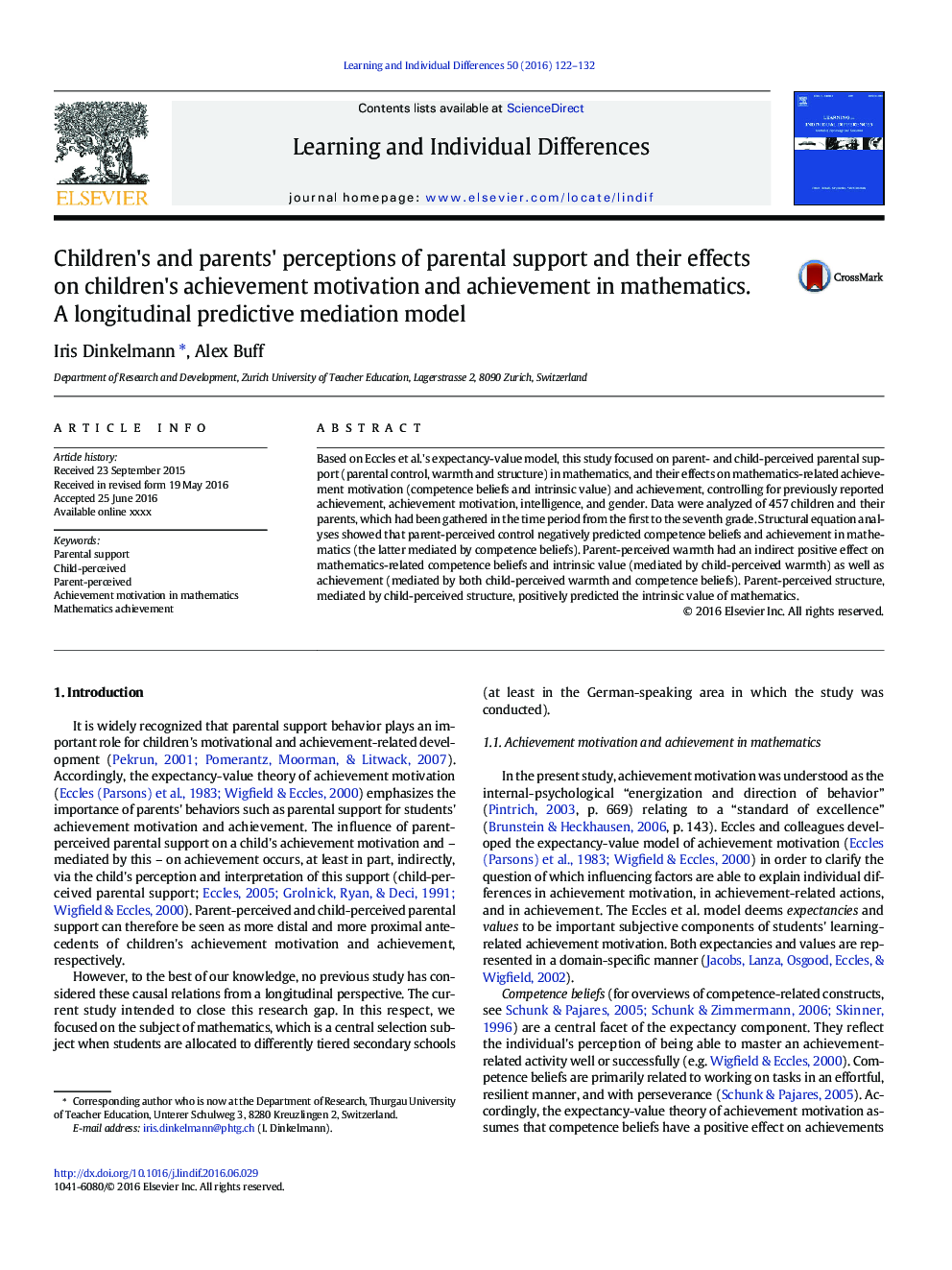| کد مقاله | کد نشریه | سال انتشار | مقاله انگلیسی | نسخه تمام متن |
|---|---|---|---|---|
| 364484 | 621069 | 2016 | 11 صفحه PDF | دانلود رایگان |
• Parent-perceived control decreases competence beliefs and achievement in maths.
• Parental warmth increases achievement motivation and achievement in maths.
• Parental structure increases the intrinsic value of maths.
• Child's perception mediates the effects of parent-perceived warmth and structure.
• Competence beliefs mediate the influence of parental support on maths achievement.
Based on Eccles et al.'s expectancy-value model, this study focused on parent- and child-perceived parental support (parental control, warmth and structure) in mathematics, and their effects on mathematics-related achievement motivation (competence beliefs and intrinsic value) and achievement, controlling for previously reported achievement, achievement motivation, intelligence, and gender. Data were analyzed of 457 children and their parents, which had been gathered in the time period from the first to the seventh grade. Structural equation analyses showed that parent-perceived control negatively predicted competence beliefs and achievement in mathematics (the latter mediated by competence beliefs). Parent-perceived warmth had an indirect positive effect on mathematics-related competence beliefs and intrinsic value (mediated by child-perceived warmth) as well as achievement (mediated by both child-perceived warmth and competence beliefs). Parent-perceived structure, mediated by child-perceived structure, positively predicted the intrinsic value of mathematics.
Journal: Learning and Individual Differences - Volume 50, August 2016, Pages 122–132
